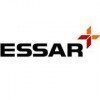Environmental Engineer
10+ Environmental Engineer Interview Questions and Answers
Asked in Sartime Horological

Q. What is water treatment?
Water treatment is the process of removing contaminants from water to make it safe for various uses.
Water treatment involves various physical, chemical, and biological processes.
Common methods of water treatment include filtration, disinfection, and sedimentation.
Water treatment plants use processes like coagulation, flocculation, and chlorination.
Water treatment is essential for providing clean drinking water and preventing waterborne diseases.
Examples of water treatment sys...read more
Asked in MKG ENGINEERING SERVICES

Q. What are STP and ETP? Mention their significance.
STP stands for Sewage Treatment Plant and ETP stands for Effluent Treatment Plant. They are used to treat wastewater before releasing it back into the environment.
STP is used to treat sewage from residential and commercial buildings before releasing it back into the environment.
ETP is used to treat industrial wastewater before discharging it into water bodies or sewage systems.
Both STP and ETP help in reducing the pollution caused by untreated wastewater and protect the envir...read more
Environmental Engineer Interview Questions and Answers for Freshers

Q. What is biomining and what are its processes?
Biomining is the extraction of metals from ores using microorganisms, enhancing recovery and minimizing environmental impact.
Utilizes bacteria and archaea to leach metals from ores.
Commonly used for copper, gold, and uranium extraction.
Microorganisms oxidize metal sulfides, releasing soluble metals.
Example: Thiobacillus ferrooxidans is used for copper recovery.
Biomining is more environmentally friendly than traditional mining methods.

Asked in Livpure

Q. What is reverse osmosis?
Reverse osmosis is a water purification process that uses a semipermeable membrane to remove ions, molecules, and larger particles from water.
Reverse osmosis is a filtration method that removes contaminants from water by applying pressure to force it through a semipermeable membrane.
It is commonly used in desalination plants to convert seawater into drinking water.
Reverse osmosis can remove various impurities including dissolved salts, bacteria, viruses, and organic compounds...read more

Asked in bgr Mining infra pvt Ltd

Q. What are PM 10 and PM 2.5?
PM 10 and PM 2.5 are particulate matter with diameters of 10 micrometers and 2.5 micrometers respectively.
PM 10 refers to inhalable particles that can penetrate into the respiratory system.
PM 2.5 refers to fine particles that are smaller and can penetrate deeper into the lungs.
Both PM 10 and PM 2.5 are air pollutants and can have adverse health effects.
Examples of PM 10 sources include dust, pollen, and mold spores.
Examples of PM 2.5 sources include combustion particles from ...read more
Asked in Enviro Resources

Q. Tell me about your education and any previous internships you have completed.
I hold a degree in Environmental Engineering and completed an internship focused on sustainable water management practices.
Graduated with a Bachelor's degree in Environmental Engineering from XYZ University.
Completed an internship at ABC Environmental Solutions, where I assisted in water quality assessments.
Participated in a project that aimed to reduce industrial waste discharge into local water bodies.
Gained hands-on experience with environmental impact assessments and regu...read more
Environmental Engineer Jobs



Asked in MKG ENGINEERING SERVICES

Q. How can hard water be treated?
Hard water can be treated through various methods to reduce its mineral content.
Water softening: The most common method involves removing the minerals that cause hardness, such as calcium and magnesium ions.
Ion exchange: This process replaces the calcium and magnesium ions with sodium or potassium ions.
Reverse osmosis: It uses a semipermeable membrane to remove minerals, impurities, and contaminants from water.
Distillation: Boiling water and collecting the condensed steam hel...read more

Asked in Essar Group

Q. What is wastewater treatment?
Waste water treatment is the process of removing contaminants from wastewater to make it safe for discharge or reuse.
Waste water treatment involves physical, chemical, and biological processes to remove pollutants from water.
Common methods include sedimentation, filtration, disinfection, and biological treatment.
The goal is to produce treated water that meets environmental regulations and can be safely discharged into the environment or reused for various purposes.
Examples of...read more
Share interview questions and help millions of jobseekers 🌟

Asked in Ennar Infrastructure

Q. What is nozzle grouting?
Nozzle grouting is a method used in construction to fill voids or cracks in rock or concrete using a grout mixture.
Nozzle grouting involves injecting a grout mixture into voids or cracks using a nozzle attached to a pump.
The grout mixture can be cement-based or chemical-based, depending on the specific requirements of the project.
Nozzle grouting is commonly used in tunnel construction, foundation repair, and soil stabilization.
The process helps improve the strength and stabil...read more
Asked in Ennar Infrastructure

Q. What is quantity of sand
The quantity of sand can vary depending on the context, such as volume or weight.
Quantity of sand can be measured in volume (cubic meters, cubic feet) or weight (tons, pounds).
The quantity of sand needed for construction projects is typically measured in cubic meters.
For landscaping purposes, the quantity of sand may be measured in cubic feet.
The weight of sand can vary depending on factors such as moisture content and grain size.
Asked in Ennar Infrastructure

Q. What is the difference between a PSC girder and a tensile girder?
PSC girder is a prestressed concrete girder while a tensile girder is a type of structural member that resists tension forces.
PSC girder is made of concrete with internal prestressing tendons to improve strength and durability.
Tensile girder is a type of structural member that resists tension forces, typically made of steel or reinforced concrete.
PSC girders are commonly used in bridge construction for their high strength and durability.
Tensile girders are used in various str...read more

Asked in SA Infrastructure Consultants

Q. Environmental Clearance on Highway
Environmental clearance on highways is required to ensure that construction projects do not harm the environment.
Environmental impact assessment must be conducted before obtaining clearance.
Mitigation measures should be implemented to minimize environmental damage.
Public consultation and stakeholder engagement are important in the clearance process.
Compliance with environmental laws and regulations is necessary.
Examples of environmental concerns on highways include air and no...read more

Asked in SAI Life Sciences

Q. How do you calculate ammonia content?
Calculating ammonia concentration involves understanding its sources, effects, and measurement techniques in environmental engineering.
Ammonia (NH3) is a common pollutant from agricultural runoff and wastewater.
To calculate ammonia concentration, use the formula: C = m/V, where C is concentration, m is mass, and V is volume.
Example: If 10 grams of ammonia is dissolved in 2 liters of water, the concentration is 5 g/L.
Ammonia levels can be measured using methods like colorimetr...read more

Asked in Vimta Labs

Q. Baseline monitoring collection process
Baseline monitoring collection process involves gathering data on environmental conditions before any changes are made.
Baseline monitoring involves collecting data on air quality, water quality, soil conditions, and biodiversity.
Data is collected over a period of time to establish a baseline for comparison.
Monitoring stations are set up in key locations to gather data continuously.
Samples are collected using various methods such as air samplers, water sampling bottles, and so...read more

Asked in Vimta Labs

Q. Explain the EIA notification of 2006.
EIA notification 2006 is a regulation in India that mandates environmental impact assessments for certain projects.
EIA notification 2006 was issued by the Ministry of Environment and Forests in India.
It requires developers to assess the environmental impact of their projects before they can be approved.
The notification categorizes projects into Category A and Category B based on their potential environmental impact.
Category A projects require mandatory environmental clearance...read more

Asked in Lars Enviro

Q. Process of uasbr, SBR,ASP,
UASBR, SBR, and ASP are different wastewater treatment processes used in environmental engineering.
UASBR stands for Upflow Anaerobic Sludge Blanket Reactor, which is a type of anaerobic treatment system for wastewater.
SBR stands for Sequencing Batch Reactor, which is a type of activated sludge process that treats wastewater in batches.
ASP stands for Activated Sludge Process, which is a biological wastewater treatment process that uses microorganisms to break down organic matt...read more
Interview Questions of Similar Designations
Interview Experiences of Popular Companies






Calculate your in-hand salary
Confused about how your in-hand salary is calculated? Enter your annual salary (CTC) and get your in-hand salary


Reviews
Interviews
Salaries
Users










